|
Overview
Beam line BL-23 is designed, developed and commissioned as a visible diagnostics beam line in Indus-2 storage ring. Its source point is at 5° port of bending magnet (DP-10) in Indus-2. A water cooled copper mirror at 5.5 m from SR source point acts as a primary pick-off mirror. It intercepts only lower half (visible part) of the dipole light with total horizontal angular acceptance of 5 mrad. The extracted visible light follows reflective and refractive optics, and focused on optical table in the dark room outside the shielding wall of Indus-2. Final measuring point in dark room is at a distance of ~20 m from source point. Instrumentation on optical table includes beam profiler, dual sweep synchroscan streak camera, position sensitive detector PSD, fast photo receiver etc. Visible diagnostics has certain diffraction limitations but, it is convenient to use it optically as non destructive diagnostics tool. V-DBL is used to observe and study longitudinal beam parameters like bunch length, bunch separation, bunch filling pattern, longitudinal beam instability etc.
 |
Schematics of the optical layout of visible diagnostic beamline. |
Beamline specifications
Parameter |
Specifications |
Source point |
5° port of DP-10 |
Source to primary mirror distance (m) |
5 |
Positioning angle of mirror (degree) |
45 |
Source to double viewport chamber or vacuum isolation distance (m) |
5.2 |
Source to first focusing lens distance (m) |
5.35 |
Beam line horizontal angular acceptance (mrad) |
5 |
Substrate in primary mirror |
OFHC copper |
Size of primary mirror(mm2) |
80 X 50 |
Thickness of reflective Au layer (micron) |
25 |
Viewports |
Kodial glass |
Diameter of Tungsten wire in wire scanner (micron) |
100 |
Beam line energy range (eV) |
2-6 |
Temporal resolution (ps) |
5 |
Schematic layout of beam line (BL-23) at Indus-2
 |
Schematic layout of beam line (BL-23) at Indus-2 |
Measured results of the image detection systems in V-DBL
Beam profile in dark room: Using beam profiler CCD
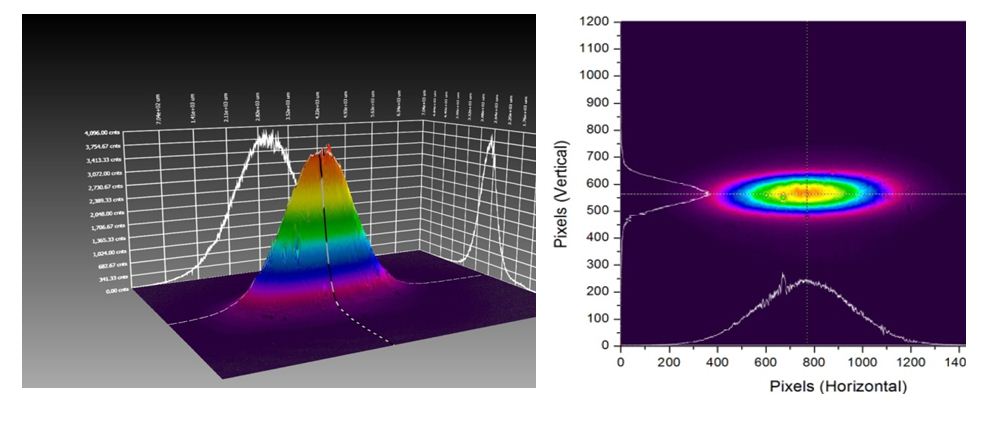 |
Beam profiles of visible light measured at optical table inside dark room at 60 mA, 2.5 GeV. (1 Pixel= 4.65 μm) |
| |
|
Beam energy spectrum showing wavelength from 350-850 nm with peak at 527 nm at optical table |
| |
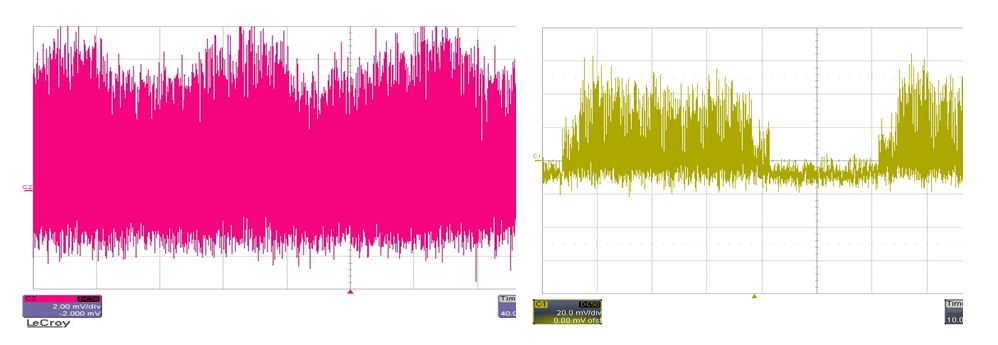 |
Typical bunch filling patterns measured at V-DBL showing 291 filled buckets (left) and 200 filled buckets (right) |
Dual sweep synchroscan streak camera system
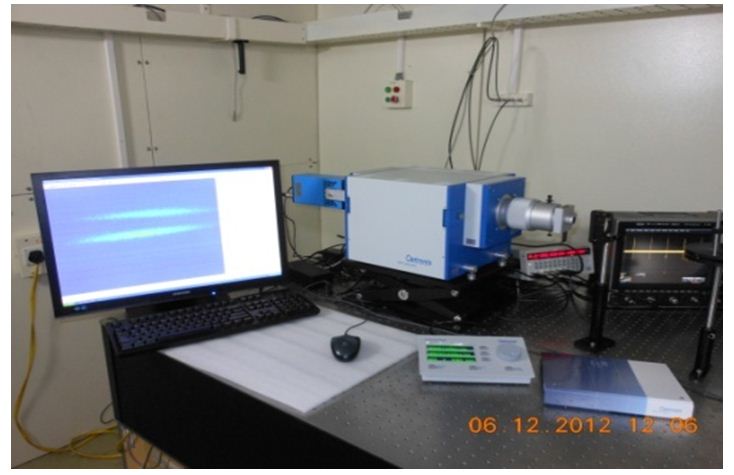 |
Dual sweep synchroscan streak camera system |
| |
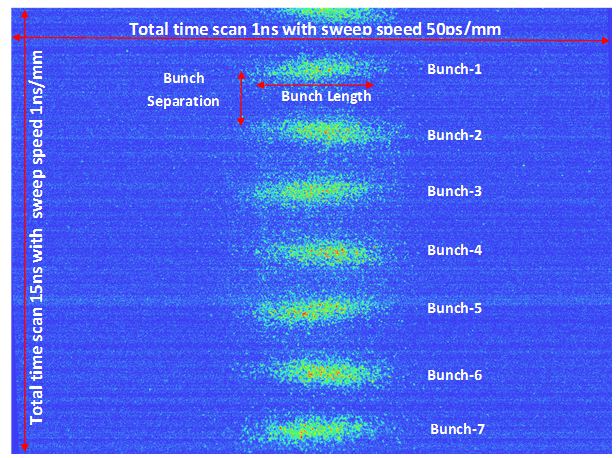 |
Snap shot of measured bunch length and bunch separation using dual sweep synchroscan streak camera for five consecutive bunches at 75mA @ 2.5 GeV energy in Indus-2. Typical measured bunch length (RMS) and bunch separation are 53 ± 2.5 ps and 1.97 ± 0.026 ns respectively
Publications
- Ojha A., Garg Akash Deep, Karnewar A. K., Holikatti A. C., Shrivastava B.B., Puntambekar T. A., and Navathe C. P.,
‘Development of LabView based image processing algorithm for online measurement of beam parameters at X-ray diagnostic beam line of Indus-2’,
Indian Particle Accelerator Conference (InPAC-2013), VECC, Kolkata, Nov. 19-22, 2013
- RRCAT/2010-06, Garg Akash Deep, Karnewar A. K., Puntambekar T. A.,
“Design of Visible and X-ray Diagnostic Beam lines for Indus-2 Storage Ring”.
Contact Number : 244 2523/ 2442551
Contacts
Sh. T.A. Puntambekar, (+91 731-2442551)
(tushar(at)rrcat.gov.in)
Head, Beam Diagnostics Section,
RRCAT, Indore (M.P.) 452013
Photo Gallery
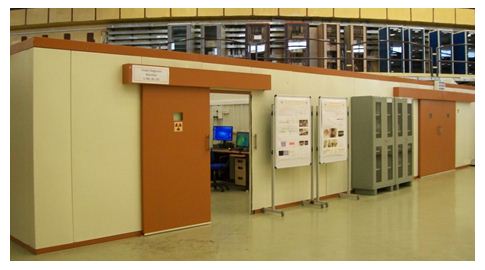 |
Visible Diagnostic Beamline, Indus-2 |
A view of beamline showing critical beamline components from the front end side
|
Visible Diagnostic Beamline, Indus-2 |
| |
|
Visible Diagnostic Beamline, Indus-2 |
| |
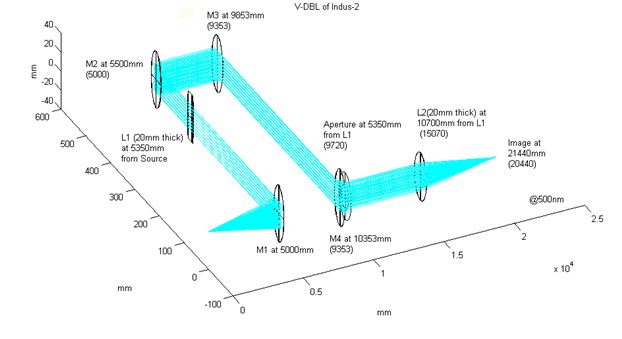 |
Optical layout plan for V-DBL (BL-23) of Indus-2 |
|














